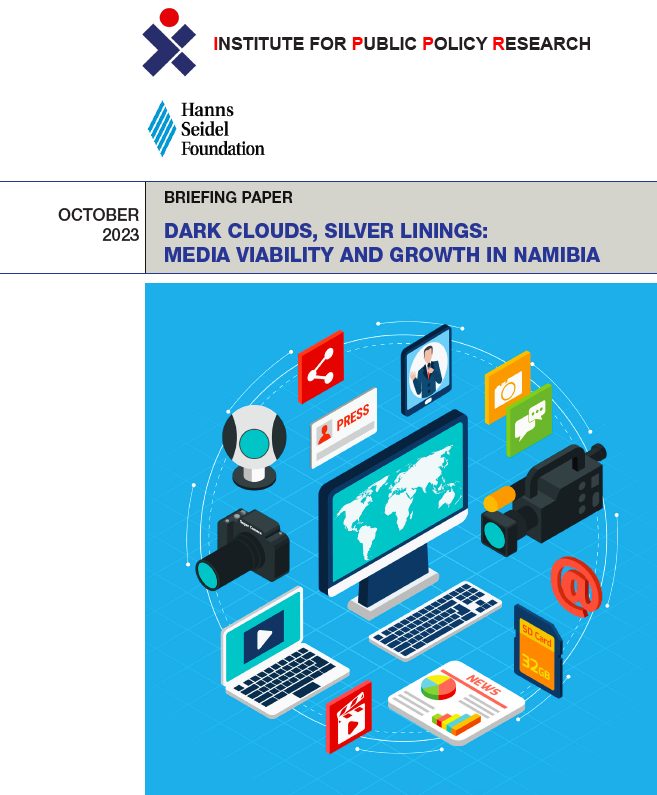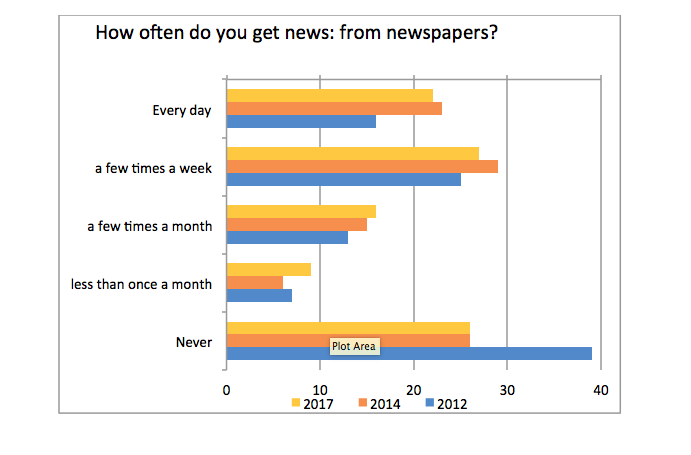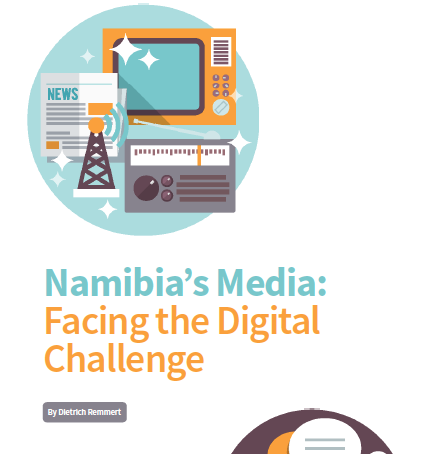Media Viability & Growth in Namibia

How are the Namibian media facing up to the challenges of the digital age?
Namibia’s Media – The Digital Challenge

Digitalisation is transforming how media products are both created and accessed. Consumers can now exercise more control over their media use in terms of how they access content. Consumers are increasingly likely to only access a few stories from newspapers or TV stations rather than reading a newspaper from cover to cover or watching an […]
Namibia’s Media: Facing the Digital Challenge
Digitalisation is transforming how media products are both created and accessed. Consumers can now exercise more control over their media use in terms of how they access content.
Consumers are increasingly likely to only access a few stories from newspapers or TV stations, rather than reading a newspaper from cover to cover or watching an entire news bulletin. These stories are accessed online via social media platforms, digital media or search engines – mostly for little or no monetary gain for the respective media outlet. On the positive side, digitalisation has led to new and innovative ways of presenting content and engaging with consumers.
Namibia’s Media – Facing the Digital Challenge

Globally, the media industry is undergoing a far-reaching transformation as a result of rapid economic, technological and political changes over the past decade. The digital revolution has been positive in many respects: significantly more people are now able to affordably and quickly access vast amounts of information via internet platforms around the world. However, digitalisation […]
Study of media sustainability in Namibia launched
The Namibia Media Trust and the Institute for Public Policy Research on Monday launched the first media sustainability study in the country.
The launch, which came ahead of World Press Freedom Day on 3 May, assessed how the industry is being disrupted and reshaped in the digitalisation era. The event was also held in collaboration with the Hanns Seidel Foundation and the Open Society Initiative for Southern Africa (Osisa).
